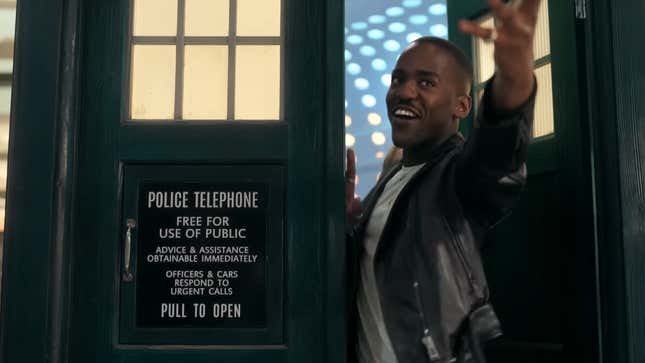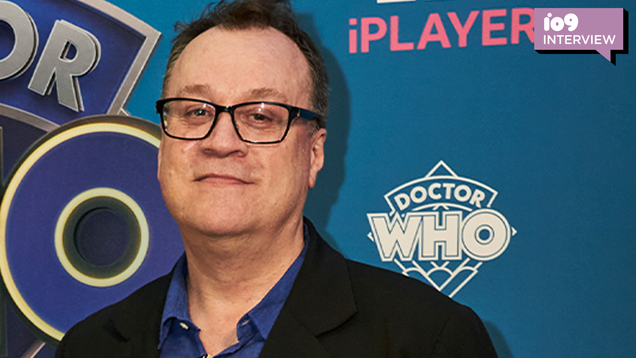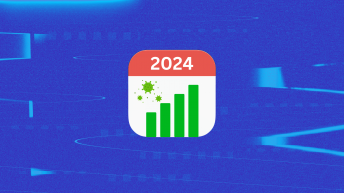Russell T Davies may have already returned to Doctor Who with its 60th anniversary specials, but a new, full season of the show brings with it myriad opportunities. Doctor Who’s latest relaunch is no exception: a new Doctor, a new companion, new adventures, and perhaps in the biggest change of all, a new home beyond the UK’s borders on Disney+.
Chad Stahelski on Returning to The Matrix
Those aforementioned specials broadcast simultaneously on the Disney streamer alongside their terrestrial broadcast on the BBC in the UK. But when Doctor Who returns this Friday, it’ll do so first digitally: streaming in primetime on the East Coast of the U.S., and midnight local time on the BBC iPlayer in the UK, before eventually broadcasting on TV later in the day in the latter region. It’s a move that’s generated its own share of controversy in Doctor Who’s homeland, but for Davies, it’s part of the necessity of why he returned to run the series again in the first place.
“I’ve never run out of things to say about Doctor Who—it’s 61 years old now, so no one’s ever run out of stuff. But I was a big believer in the BBC’s ambition for it,” Davies recently told io9 over Zoom, speaking about why he wanted to return to a series he’d left a definitive mark on during his five-year tenure reviving the show in 2005, taking it from an overnight sensation into a huge cultural force in the UK. “[There was a desire] to increase the budget, and I don’t think it’s right to increase the budget from the BBC license fee [ed. note: the license fee is a yearly UK payment required by law in order to watch broadcast and streaming TV in the UK, the money from which goes to the budget of public broadcast services like the BBC]. I think, at the time, the BBC’s under a lot of attack and criticism from our terrible government. The BBC license fee goes into news making, news and all the radio and all community stuff it does, as well as its dramas, is extraordinary broadcasting. So if you want Doctor Who to have a bigger budget, it’s not right that it comes from the license fee—it is right that we go to a bigger broadcaster, a bigger platform, and go into co-production with them.”
This is also a natural trend in the changing nature of making TV in Britain—and as someone who’s been doing just that for the best part of 40 years in a career that’s spanned children’s programming, young adult drama, cutting edge LGBTQ series like Queer as Folk, and of course, genre series like Doctor Who, Torchwood, and beyond, Davies understood exactly what the BBC needed. “Let’s face it, there’s been no British drama made in the last 30 years that hasn’t had American money in it. This shouldn’t be a surprise to anyone. Every Dickens adaptation you’ve ever enjoyed is probably made with Masterpiece or HBO—so, this is a very normal pattern, but I believed in it for Doctor Who,” the showrunner explained.
“I think, in some sense the BBC wanted, in taking it onto a bigger platform, they wanted someone who knew the show, who knew what they were doing. But that’s me, that’s unashamedly me! I was excited by the chance to work at this level, which I never had done before. I’ve had a lovely career in television, but have never actually worked with streamers and done this kind of stuff before. I’ve worked with America, I’ve worked with HBO. I’ve worked with American producers. So, I have the experience to come in and take that work, but it was all exciting. As a producer, I found that really exciting. I thought it fitted Doctor Who’s ambition and potential.”

Another aspect of Davies’ past in television that now gets to influence his new work on Doctor Who is elevating queer storylines. Much has already been made of incoming Doctor Ncuti Gatwa’s gender-defying sense of style impacting the Time Lord’s latest aesthetic, but the series goes beyond just nice clothes, casually framing queer characters and stories into its world, even if not necessarily always centering them (though that has certainly come up, like the introduction of Donna Noble’s trans daughter, Rose, played by Heartstopper’s Yasmin Finney, who appeared in the 60th anniversary specials and will appear again in the new season). It’s something the modern era of Doctor Who, regardless of showrunner, has struggled to do in fits and starts. “Casual is the right way to do it. It never feels important, it feels natural. This is my world, my only world, I don’t recognize any other world,” Davies noted. “If you look at the rest of my work, that’s the work I’ve been doing since 1999. And actually before that, I had 10 years in self-publishing before that—introducing queer character, after queer character, after queer character. Gay pride groups, lesbian vicars, gay school boys—I did them all. It’s actually heading toward more like 40 years of work I’d put into that stuff.”
“It’s just natural to me. There’s no other way I would write. And there’s a danger in making it sound surprising, as though you’re introducing that into a straight world. The world isn’t straight. The world is everything, every shape and type out there is possible,” he added. “The notion of a straight world does not exist. So, that’s why I felt the freedom and the joy of doing this, and I think it’s something to be celebrated. It’s a joyful thing rather than a mission.”
The idea that this new era of Doctor Who is more of a continuation of Davies’ work on the show as he left it in 2009 can also be seen in the talent working behind the cameras—a veritable rogues’ gallery of returning producers, the return of composer Murray Gold, and, perhaps most intriguingly of all for fans, the return of writer Steven Moffat, who inherited the mantle of showrunner from Davies in 2010, through to 2017. Bringing Moffat back to write a new episode—the third of the season, simply titled “Boom”—was a chance for Davies to collaborate with him as both a former showrunner and as a friend.
“What was nice is that he’s a mate and we got to know each other very well through Doctor Who. The lovely thing about him writing an episode of Doctor Who is, I get to work with him again, spend time with him,” Davies said. “To [actually] get to spend time with him… the man is uproarious. He’s so funny. He’s so cheeky. He can be so fantastically rude, in a brilliant, clever way. As always, we have trouble affording things, and so the way he slices through production problems, I learn a lot from him. But simply to spend time in his company—and I’d like to say he loved it as well. It properly reanimated our friendship, we have such a laugh together, good times, and at the same time, working very hard on an episode I can’t wait for you to see!”
Doctor Who returns globally with a two-episode premiere Friday, May 10, at 7 p.m. ET on Disney+, and will broadcast through the BBC iPlayer at the same time in the UK, at 12 a.m. local time on Saturday, May 11, before broadcasting on BBC One later that day.
Want more io9 news? Check out when to expect the latest Marvel, Star Wars, and Star Trek releases, what’s next for the DC Universe on film and TV, and everything you need to know about the future of Doctor Who.






Add comment